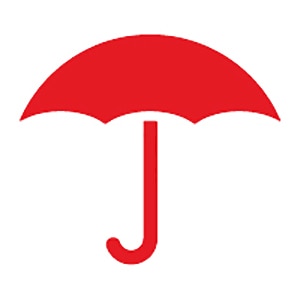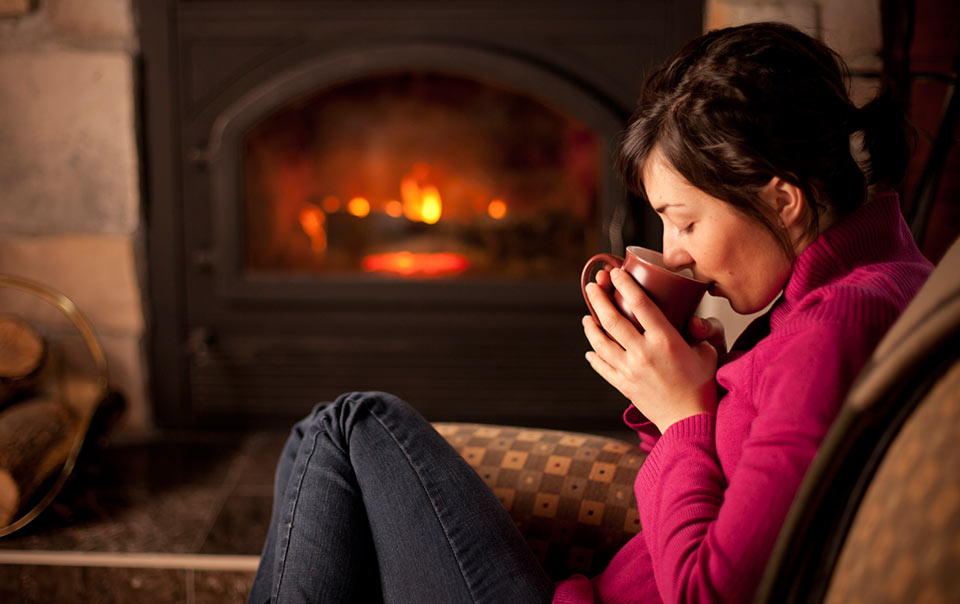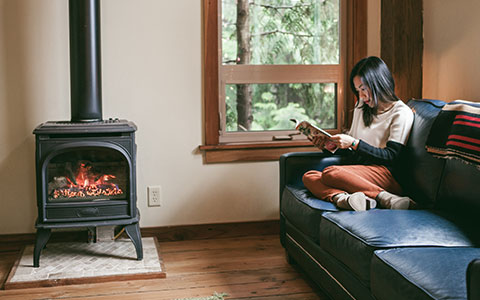
Fireplace Safety & Maintenance



When the colder temperatures start to set in, many homeowners will turn to their fireplace, wood or pellet stoves as an additional heat source. While fireplaces can provide warmth and comfort, if you are not careful, they can also be a hazard. Keep in mind the following precautions to help ensure a safe winter season.
Keep Your Chimney Fireplaces and Wood Stoves Clean
- Have your chimney, fireplace, wood or pellet stove inspected and cleaned by a licensed chimney specialist. They should be maintained annually to help ensure they are functioning safely and efficiently.
- Be sure to keep the area around the hearth clear of debris, decorations and any other combustible materials.
- If you have a wood burning, insert or pellet stove, refer to the manufacturer’s instructions for additional guidance related to operation and venting.
Keep Fires Burning Safely
- Be sure the flue is open before lighting your fire to help ensure the fireplace will vent properly. Do not close your damper until you are sure the fire is out.
- When starting a fire, only use a match or commercial firelighter. Never use flammable liquids to start a fire.
- Glass doors of a fireplace should be kept open while burning a fire. This allows the fire to receive enough air for complete combustion and to help reduce creosote build-up in the chimney.
- Metal mesh screens should remain closed whenever your fireplace is in use to help keep embers in the fireplace.
- Only use dry wood in your fireplace. Wet wood can increase creosote buildup, which can lead to chimney fires.
- Do not burn plastic because it can release toxic chemicals and cause damage to your chimney, fireplace or wood stove.
- Never burn a Christmas tree in your fireplace as the sparks from the burning needles can increase the risk for a chimney fire. Also, do not burn cardboard boxes, wrapping paper or trash in your fireplace.
- Never leave a fire in a fireplace unattended. Before leaving the house or going to bed, you should make certain to fully extinguish the fire.
- Allow ashes to cool completely before disposing of them — ashes can take several days to cool completely. Never empty ashes directly into a trash can. Instead, place ashes in a covered metal container located at least 10 feet1 away from your home and any other building.
Keep the Outside of Your Home and Your Chimney Safe
- Firewood should be stacked at least 30 feet away from your home.2
- Your roof and chimney should be kept clean of leaves, pine needles and other debris. Prune trees and branches to keep them away from your chimney.
- Install a chimney cap with spark arrester to help keep debris, leaves, branches and animals out, and to help prevent burning embers or sparks from escaping and creating a fire hazard.
Keep the Inside of Your Home Safe with Smoke and Carbon Monoxide Detectors
To help make your winter even safer, we recommend that you take the time to test your smoke and carbon monoxide detectors. A smoke detector is the most effective way to detect smoke from a fire and signal an alarm so that you can get you and your family out safely. A carbon monoxide detector can alert you to the buildup of this dangerous odorless and colorless gas. Make sure you test the detectors monthly, and after you change the batteries to ensure they work properly.
Source:
1 National Fire Protection Association. (2015). Wood and Pellet Stove Safety. PDF accessed from http://www.nfpa.org/safety-information/safety-tip-sheets.
2 National Fire Protection Association. (2015). Wildland Fire Safety. PDF accessed from http://www.nfpa.org/safety-information/safety-tip-sheets.
More Prepare & Prevent

Pellet Stove Safety
Pellet stoves are a great source of heat, but can be dangerous if not installed or used properly.

Holiday Fire Safety [Infographic]
Know what to do to help avoid the common fire mishaps with these holiday fire safety tips.

How Much Homeowners Insurance Do I Need? [Video]
Here's an overview of what's typically included in a homeowners policy, as well as some other things to consider based on where you live and what you own.